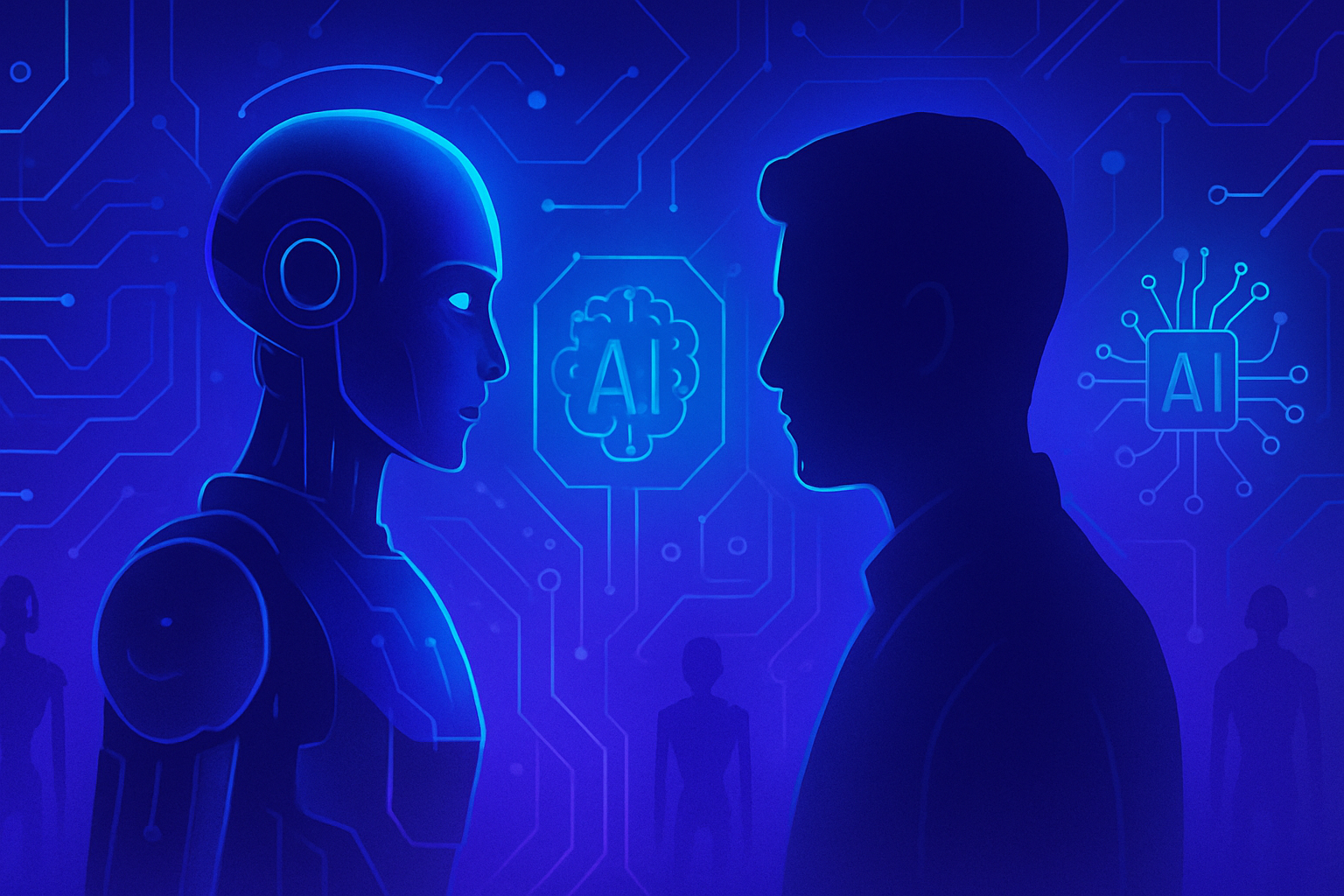Anthropic reinvents the realm of AI with Claude 4, a model designed to revolutionize programming. The advancements of this family of models translate into unprecedented performance in coding and autonomous tasks. Two variants emerge: Opus 4, which claims to be the coding champion, and Sonnet 4, a versatile tool adapting to diverse requirements.
Anthropic’s Claude 4: A Landmark Advancement for Artificial Intelligence
Anthropic’s latest innovation, the Claude 4 model family, transforms the landscape of AI assistants and programming. Claude Opus 4 positions itself as a revolutionary model, capable of redefining performance standards, particularly in areas such as programming, research, and writing.
Claude Opus 4: Power and Performance
Anthropic presents Claude Opus 4 as its most powerful model to date, setting new standards in the field of coding. Performance testing results demonstrate its efficiency, achieving impressive scores of 72.5% on the SWE-bench and 43.2% on the Terminal-bench. This model is designed to provide sustained performance on complex tasks, thus enabling continuous execution over several hours.
The capabilities of Opus 4 transform the working conditions for developers. Its ability to tackle problems requiring genuine persistence could significantly broaden the application scope of AI agents.
Claude Sonnet 4: Unprecedented Versatility
Meanwhile, Claude Sonnet 4 emerges as a true versatile tool for everyday applications. Preliminary feedback from users shows unprecedented enthusiasm. GitHub, for instance, has expressed its intention to integrate Sonnet 4 as a foundational model for its new coding agent in GitHub Copilot.
Analysts such as Manus also highlight notable improvements in Sonnet 4 regarding handling complex instructions, clear reasoning, and aesthetic rendering. Enhanced features for navigating codebases, which nearly eliminate navigation errors, mark a significant advancement in development.
Hybrid Features for Optimized Efficiency
An innovative aspect of the Claude 4 models lies in their ability to operate in two modes. These two configurations allow for instant responses or deep reflection for more complex reasoning. While this extended thinking mode is available in Anthropic’s Pro, Max, Team, and Enterprise packages, Sonnet 4, with its advanced functions, will also be offered to free users.
Tools for Developers: Expanded Opportunities
Anthropic also rolls out new tools aimed at developers via its API, aimed at enriching the creation of sophisticated AI agents. Among them, the code execution tool allows models to actually execute code, facilitating interactive applications and problem-solving. The MCP connector normalizes context exchanges between AI assistants and software environments, optimizing efficiency.
The Files API also facilitates direct work with files, a valuable advancement for many concrete tasks. As for the prompt caching function, it enables the storage of common queries for one hour, thus improving interaction speed.
Real Performance: A Market Leader
The Claude 4 models dominate performance on benchmarks such as SWE-bench Verified, which assesses efficiency in real software engineering tasks. Anthropic claims that these models show solid results in various areas including coding, reasoning, and multimodal tasks.
The pricing for the new models remains stable, with Claude Opus 4 priced at $15 per million input tokens and $75 for output tokens. Claude Sonnet 4, more accessible, is offered at $3 per million for input and $15 for output, a pricing structure appreciated by current users.
These new innovations are available through Anthropic’s API, as well as on Amazon Bedrock and Google Cloud’s Vertex AI, allowing companies to easily start experimenting with these tools.
Anthony places particular emphasis on developing advanced AI capabilities, particularly in coding and the autonomous behavior of agents. The combination of cutting-edge models and tools for developers promises to pave the way for significant innovations.
Frequently Asked Questions
What is Claude 4 from Anthropic and what are its main features?
Claude 4 from Anthropic is a new series of artificial intelligence models that includes Claude Opus 4 and Claude Sonnet 4. These models are designed to enhance performance in areas such as programming, research, and writing, focusing on specific and complex tasks.
How does Claude Opus 4 compare to other artificial intelligence models on the market?
Claude Opus 4 is presented as the most powerful coding model to date, achieving high scores on key industry benchmarks, thus demonstrating superior performance in programming tasks.
What are the advantages of Claude Sonnet 4 for everyday users?
Claude Sonnet 4 offers significant improvement in agentic scenarios, enabling optimized performance in application development and problem-solving through better handling of complex instructions.
What is the pricing model for accessing Claude 4 from Anthropic?
Claude Opus 4 is offered at $15 for one million input tokens and $75 for one million output tokens, while Claude Sonnet 4 is more accessible, at $3 for one million input tokens and $15 for one million output tokens.
What tools are available for developers using Claude 4?
Developers have access to various tools, such as the code execution tool, the MCP connector for context exchange with software environments, a file API, and prompt caching, thus improving efficiency and speed of tasks.
Is Claude 4 from Anthropic available on other platforms?
Yes, Claude 4 models are accessible via Anthropic’s API as well as on cloud platforms such as Amazon Bedrock and Google Cloud’s Vertex AI, allowing for easy integration for developers worldwide.
How does Claude 4 from Anthropic represent an advancement in the field of AI programming?
With the ability to handle complex and persistent tasks, Claude 4 expands the possibilities for autonomous AI agents, facilitating the development of innovative solutions and improving code quality.
What are the differences between the fast response modes and the deep reflection mode in Claude 4?
Claude 4 offers two modes: a fast response mode for immediate queries and a deep reflection mode, which allows for more complex and detailed reasoning, ideal for tasks requiring prolonged attention.






